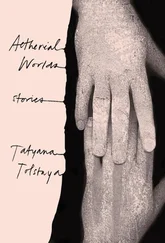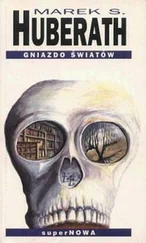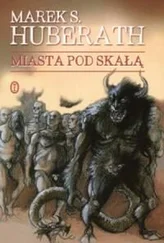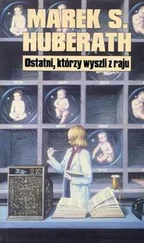“Or two red women. I was informed.”
“You’ll have to worry about her health. After those years on the ship. The climate in Davabel isn’t good for the fair-haired.”
“It isn’t. I’ll have to worry.”
He signed the necessary papers, carefully reading everything before he signed. Then he left.
His minibus was waiting in the endless, snow-covered parking lot. Pat and Goft both slept; two passengers dozed on their seats. Goft, waking, opened the door.
“So? You’re alone?” he asked. “That doesn’t mean anything,” he added, looking into Gavein’s face. “Sometimes they make a mistake about the port. There’s hope.”
“No, I found her. She’s in quarantine.”
“There you go.” Goft clapped him on the arm.
Pat opened an eye. “We’re here until the evening,” he explained. “We have two others taking care of business.”
The red tape of moving from Land to Land rarely consumed only one day. The drivers had spent the night in the minibus, waiting for the passengers to return.
Gavein nodded off, euphoric. He wasn’t bothered by his uncomfortable seat or by the snoring of the others. Ra Mahleiné was alive; she hadn’t changed, hadn’t become ugly or fat. He liked her even more in glasses—he had always liked women in glasses.
He awoke when they started to move. One of the passengers hadn’t returned, but the agreement had been not to stay longer. The other brought with him a son he hadn’t seen in thirty years—for five years they would be a family, those two, and then they would have to part forever.
Gavein began to whistle, but stopped at the stern glances of the others. In Davabel whistling in a public place was rude. Thinking about Ra Mahleiné, he fell asleep.
It was early morning when he woke up, ill at ease. He had the feeling that something bad was happening. Pat was seated behind the driver, his face to the passengers. His color was more livid than usual; he was clutching his throat and struggling for air.
“What’s wrong, Pat?” Gavein asked. Everyone else was asleep.
Pat wheezed. His eyes were bloodshot.
“Goft, drive to the nearest hospital! Something’s wrong with Pat.”
Goft turned at the nearest intersection and stepped on the gas. In this part of the city he didn’t need to ask for directions. Pat was unconscious now.
After a quarter of an hour they stopped before the bright door of a hospital. Goft jumped out. He came back with two orderlies, a gurney between them. Together they pulled Pat’s limp body onto a stretcher. A doctor ran up and began to examine him.
“Probably a heart attack. And you’re probably too late,” he said but connected Pat to a respirator. They wheeled him into the hospital and toward an elevator, at a run. Goft went with them; Gavein waited at the entrance. The other passengers slept. It was bitter cold.
After an hour, Goft appeared.
“They’re massaging his heart, but I don’t think that will help. He was an Aktid, and I told him a hundred times he should retire… He was too old for this work. I called his family.”
Aktid was one of the Names of Man, and it meant “through activity.”
Goft took the passengers home. At the stops he phoned the hospital. The second time he called, he was told that the resuscitation had been discontinued. The death of his partner placed a question mark over the future of their small business.
When the minibus drove up to the front of his building, Gavein saw movement, though it was three in the morning. People were walking about, and there were several cars parked. Blue and red lights flashed: two police vans and a fire truck.
Gavein got out. “What happened? Was there a fire?” he asked a woman neighbor who was standing nearby.
“A gas explosion,” she said. “One of Edda’s boarders, the woman whose child got burned. She put her head in the oven, turned on the gas. That’s what the fireman said… And in the middle of the night another boarder went into the kitchen with a lit cigarette and died on the spot.”
“A good thing the owners weren’t gassed as well. They live on the ground floor,” observed a heavy man in thick glasses.
Gavein recognized Max.
“I know the owners,” Max went on. “If not for that explosion, more people might have died… Everyone was asleep.”
“And what about Gwenda?” Gavein asked.
“Who?”
“The first boarder.”
“An ambulance took her. But it’s over with her. I heard one of the doctors say that it was over with her,” replied another neighbor.
The firefighters were folding their hoses and putting them back on the truck. The police were finishing up their paperwork. As the crowd dispersed, Gavein made his way to the door. On the ground floor most of the windows had been broken. The wallpaper was black with soot, and a rug was burnt. A couple of stools were in pieces.
Edda appeared in a doorway, in a state of more undress than usual. She wore a linen nightshirt and had thrown her son’s leather jacket—the one with the skulls, which was too small for her—around her shoulders.
“I’m glad you’re here, Gavein,” she said. “See what a misfortune. I told Haifan to watch Gwenda, after what happened to Aladar. He was devastated but should have kept an eye on his wife, knowing she was a Sulledda …”
Sulledda meant “by one’s own hand.” Gavein had not known Gwenda’s Significant Name.
“I told you, didn’t I, that it was lurking, circling. It found Gwenda. And I’ll tell you something else, Gavein. I feel it, I know it’s there. It’s still out there.” In her eyes he thought he saw the fixity of madness. “The thing’s not done with us yet, it’s circling… Such a peaceful home we had, and now, all this death.”
“I too was the witness of a tragedy. One of the drivers of our minibus had a heart attack coming back, and he died.”
“The driver?”
“His partner was driving just then.”
The next morning Gavein learned that in the explosion one of the servants’ daughters, Vera, had also perished. She had come down to the kitchen at night. She died instantly but would have had no chance anyway, being a Flomirra .
No one but her parents noted her passing. Not long in this life, she had gone on to one that was better. Or so promised the Davabel Rule of Incarnations.
Vera’s sister, Laila, had gone with her but stopped for a moment in the corridor, hurting her foot, so the explosion only wounded her. Since Laila’s Significant Name was Fluedda , her parents had every hope that she would recover.
The day after that, everyone sat quietly at the table, the whites included. Gavein was pleased to see this; he had been worrying about what would happen when he brought Ra Mahleiné home from the port. The white servant family went by the name Hougassian; the father was Massmoudieh, the wife Fatima. Edda had begun to call them Mass and Fat. But the disasters of recent days made her seek human support even among whites. Paying the price of equality, Mass had to reveal his Name, Murhred , and Fatima also— Udarvanna .
At the table, the whites seemed at a loss about what to do. No doubt their minds were on the daughter who had died and on the other daughter who was fighting for her life.
The conversation flagged. The wallpaper still gave off the sharp stink of smoke. Haifan said not a word; his son Tad picked at his food, stared at his plate. Gavein thought constantly of his wife. Zef, surprisingly, behaved himself after the blow that fate had dealt the Hougassians. (Gavein learned that he too was a Murhred .) Only Leo was inclined to speak; he told everyone about his latest symptoms: dizziness and yellow sparks before his eyes.
Читать дальше












